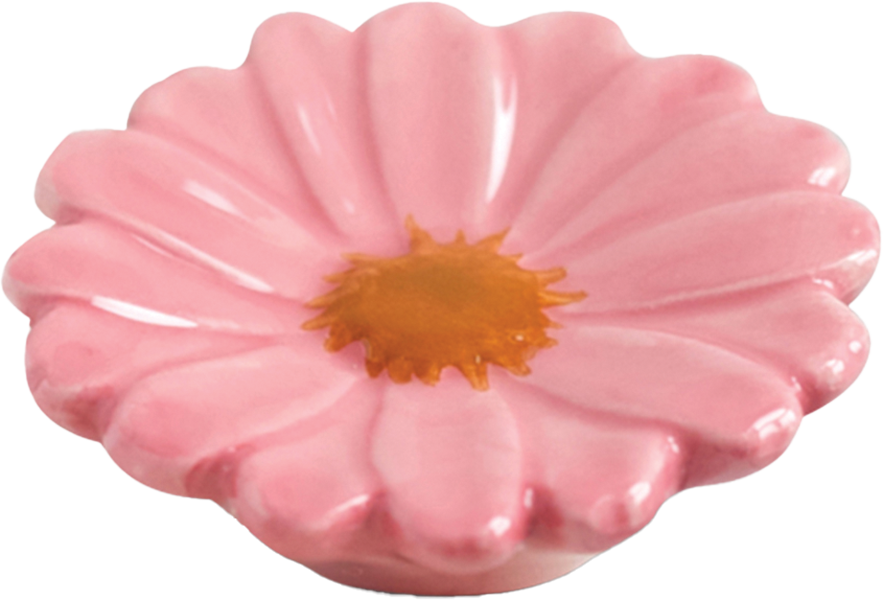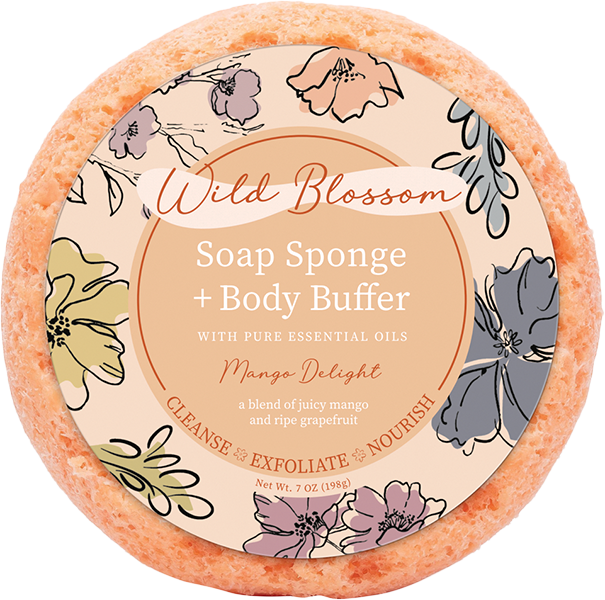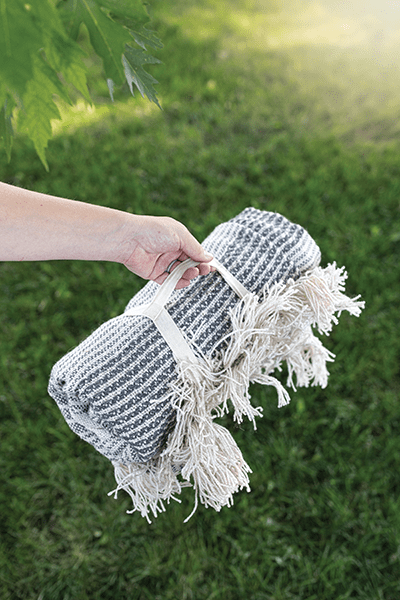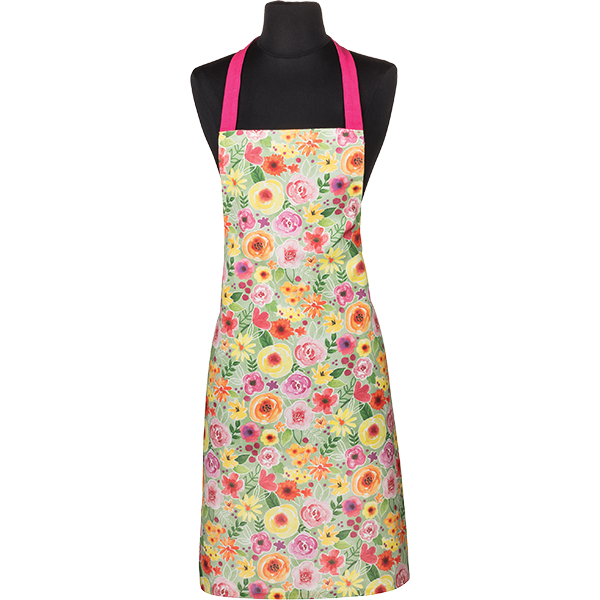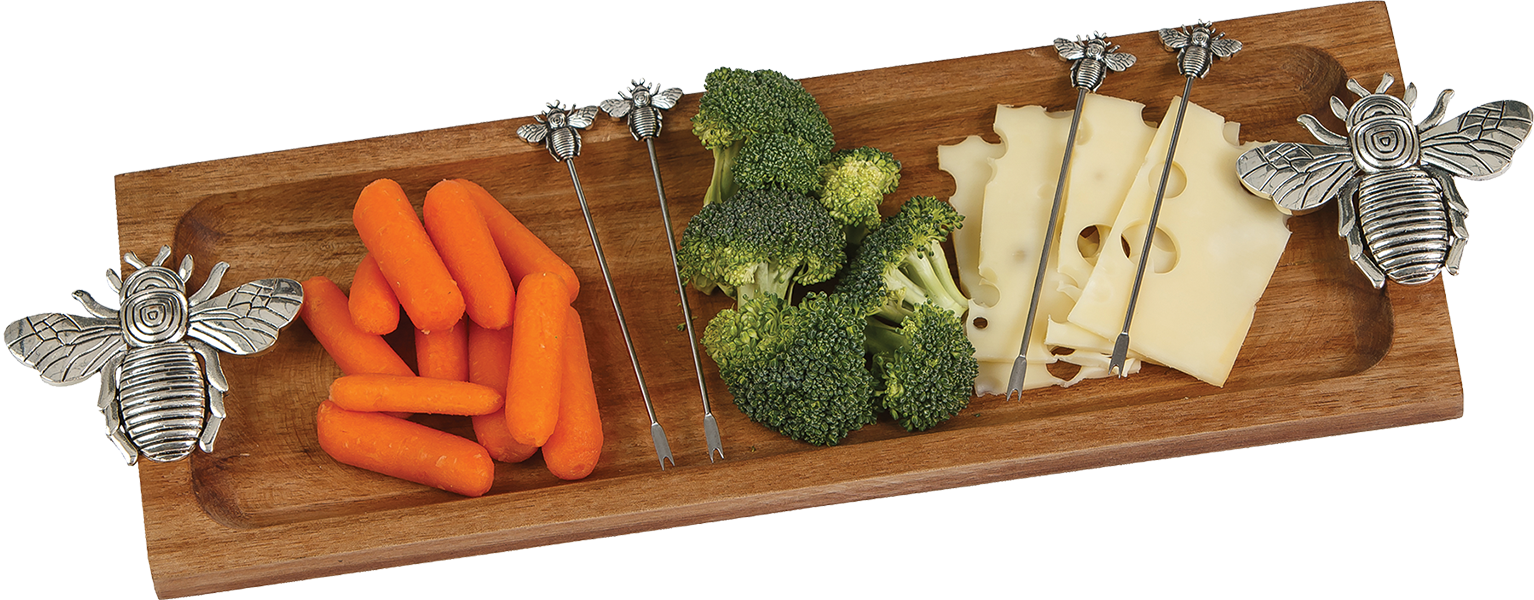Just The Zing
Specialty Foods, Defined
According to the Agricultural Developmental Center at the University of Tennessee, specialty foods can be loosely defined as premium-priced food products that provide an added-value appeal for one or more of the following reasons:
- quality of ingredients, manufacturing process and/or finished product
- sensory appeal, flavor, consistency, texture, aroma and/or appearance
- presentation (branding or packaging)
- origin (where the product was manufactured)
- distribution channel (specialty food retail outlets or sections within supermarkets/grocery stores)
Whipping up sales
Chew on this: Tough economic times may actually result in an increase in gourmet food purchases. “In recessionary times, specialty food purchases have been strong because they are viewed as affordable luxuries,” says Stephen F. Hall, chief executive officer of Food Marketing International and author of “From Kitchen to Market: Selling Your Gourmet Food Specialty.” He says there is a big push for foods that are organic, allergen-free or fair-trade. Many gourmet foods fit into one or more of these categories.
Gourmet seasonings, sauces and dip mixes make excellent gifts because they are versatile and convenient. The market for food gifts, which grew a heaping 47 percent between 2004 and 2006, is expected to grow another 45 percent by 2010, reaching more than $23 billion in sales, according to “Food Gifting in the U.S.,” a 2008 report from market research publisher Packaged Facts.
According to Packaged Facts, food gift sales gained in popularity because they provide an “experience,” or an indulgence. In fact, 26 percent of people polled by Packaged Facts said they bought food gifts for themselves.
In its 2008 State of the Industry report, the New York-based National Association for Specialty Food Trade reported that sales of seasonings in 2007 increased by 7.2 percent over 2005 levels, for a total of about $393 million. The news is even better for shelf staples, a category that includes sauces, dips and salsas. Sales in 2007 were $863 million, an increase of 18.7 percent from 2005.
Do you dip?
Gourmet foods offer unique and flavorful combinations. Shirley Kautman-Jones, owner of Country Home Creations Inc., in Goodrich, MI, keeps this in mind when developing new dips. “People want something that they are familiar with, along with a flash or an addition of something bold or new,” she says. The company’s Chipotle & Garlic Dip Mix illustrates her theory. It teams roasted chipotle peppers with garlic. On the sweet side, Country Home Creations puts together a classic duo for its new Strawberries & Cream Dip Mix.
Warm dips are hot items for Gourmet du Village, based in Quebec. The company’s new Hot Caramelised Onion and Hot Parmesan & Artichoke dip mixes are available in several formats: trios, single-serve packets, jars and boxes with recipe cards attached.
Saucy creations
Sarah Hanaburgh, of Wild Thymes, is going for a dash of the exotic with her Thai Chili Roasted Garlic dipping sauce. The Greenville, NY-based 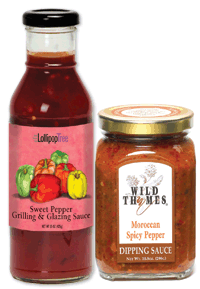 company wholesales an assortment of specialty sauces, marinades and chutneys, from Caribbean Peach Lime Chutney to Korean Ginger Scallion marinade.
company wholesales an assortment of specialty sauces, marinades and chutneys, from Caribbean Peach Lime Chutney to Korean Ginger Scallion marinade.
A bestselling sauce developed by Vervacious, in Biddeford, ME, is an espresso balsamic drizzle that won first place for best new specialty food product at the 2008 New England Products Trade Show. “It’s modeled after the flavors of the old Italian balsamics that are aged for a long time and cost a lot of money, but at a much lower price range,” says owner Heidi Stanvick. A 3.4-oz. bottle retails for $12.
Then there are the fruit- and wine-infused balsamic glazes created by Delicaé Gourmet, in Tarpon Springs, FL. Barbara Macaluso, owner, says the glazes are versatile and work with practically anything—ice cream, pound cake, grilled meat—and that they can be used as a salad dressing.
A spice for every region
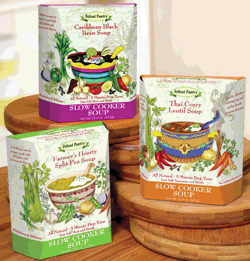 Spices and seasonings with North African, Mediterranean and Middle Eastern flavors are generating a lot of interest, according to Stanvick. “People want to try things that are a little bit out of their comfort zone–ever so slightly exotic, not too crazy, not too hot and fiery–just slightly different.” She suggests that retailers stock spices that customers can’t find in the grocery store, but that are easy to use, such as spices that can be put on meats for broiling or grilling. Vervacious’ Sahara Harissa Rub is a North African spice blend with hot pepper, cumin and caraway.
Spices and seasonings with North African, Mediterranean and Middle Eastern flavors are generating a lot of interest, according to Stanvick. “People want to try things that are a little bit out of their comfort zone–ever so slightly exotic, not too crazy, not too hot and fiery–just slightly different.” She suggests that retailers stock spices that customers can’t find in the grocery store, but that are easy to use, such as spices that can be put on meats for broiling or grilling. Vervacious’ Sahara Harissa Rub is a North African spice blend with hot pepper, cumin and caraway.
Sandra Jo Marshall, owner of Only Herbs Gourmet Seasonings, in Panama City, FL, warns retailers against displaying spices in direct sunlight. “It can bleach out the color of the seasonings,” she says. The company wholesales a variety of organically grown herbs and seasoning blends.
Seasonings for a wide variety of seafood are among the many products that Bay Beyond Inc., in Melfa, VA, offers. The company even sells a boat display fixture to showcase products in the store.
TSP Spices, based in Baltimore, offers single-serving sizes of organic spices packaged in gift containers.
Mix it up
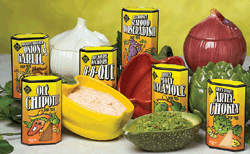 Mixes have been reliable offerings at many gift stores. The mixes may be for scones, muffins and cupcakes, as those offered by Iveta Gourmet; or for cornbread, such as those offered by B&B Gourmet Biscuit Meal. There are many varieties and wholesalers to choose from.
Mixes have been reliable offerings at many gift stores. The mixes may be for scones, muffins and cupcakes, as those offered by Iveta Gourmet; or for cornbread, such as those offered by B&B Gourmet Biscuit Meal. There are many varieties and wholesalers to choose from.
Bristol Harbor Homemade offers all-natural, nut-free baking mixes. Another company, New England Cupboard, also offers all-natural baking mixes and dip mixes. Delicaé also offers many varieties of mixes for use in slow-cooker meals.
Sea salts on the store shelf
Probably because customers are looking for more natural products, there is an increased demand for sea salts, says Marshall of Only Herbs Gourmet Seasonings. The company’s Citrus Blend with Sea Salt is a new product. It’s a blend of orange peel, tarragon and other spices. Marshall says it’s tasty on chicken, pork, salads, seafood and Fuji apples.
SaltWorks Inc., in Woodinville, WA, has introduced a line of sea salts that are produced through a proprietary process that combines sea salt with natural flavors. These infused sea salt blends, appropriately named Fusion, are all-natural with no artificial flavors, colorings or additives. Naomi Novotny, vice president, says the four best-selling Fusion salt flavors are espresso brava, lime fresco, roasted garlic and chili verde.
Sampling talks, customers listen
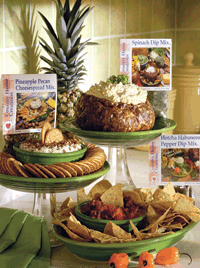 The consensus among retailers and vendors is that hosting demos and sampling events for your customers is one of the best ways to increase gourmet food sales. Paula Barr, owner of Periwinkle’s Specialty Foods, in Oswego, IL, says she displays her food products on counters that are high enough for people to easily see and sample without bending down. She has found that the expense of giving out samples is worthwhile, because it results in higher sales. “There is a lot of food that we cannot sell if we don’t sample it, because they have very unusual combinations and people don’t know what to do with it until they taste it.” She prints out recipe cards that customers can take with them at the time of purchase so that they have ideas of what they can do with the product at home.
The consensus among retailers and vendors is that hosting demos and sampling events for your customers is one of the best ways to increase gourmet food sales. Paula Barr, owner of Periwinkle’s Specialty Foods, in Oswego, IL, says she displays her food products on counters that are high enough for people to easily see and sample without bending down. She has found that the expense of giving out samples is worthwhile, because it results in higher sales. “There is a lot of food that we cannot sell if we don’t sample it, because they have very unusual combinations and people don’t know what to do with it until they taste it.” She prints out recipe cards that customers can take with them at the time of purchase so that they have ideas of what they can do with the product at home.
Marshall sells a cookbook with recipes that can be made with her products. She doesn’t make a profit on the cookbook, but it results in increased sales of her seasonings. Barr has invited other vendors to her store, and they attract a different set of customers. The store had a big purse party in the spring and put out samples of food. “Both of us benefited from it—she benefited by selling quite a few purses, and we sold a lot of food that we sampled that evening,” Barr says.
Sampling during a Christmas in July-themed event increases sales throughout the summer for Kay Courson. She is the owner of Country Thyme Vermont, in Derby, VT. When it’s almost time for the real Christmas, in December, Courson hosts a gingerbread house-decorating event for children. The store supplies the gingerbread houses and all the goodies for decorating. Santa comes to visit in the evening. The parents sample items in the store, and it’s a profitable sales event.
Take food sampling to the next level by becoming known as a great cook in the area, suggests Dorothy Finell, a consultant and author of “The Specialty Shop: How to Create Your Own Unique and Profitable Retail Business.” Prepare a mouthwatering sample using the food in the demo, she says. Your recipe will help bring in customers who may buy products from your store.
Perishables and expiry dates?
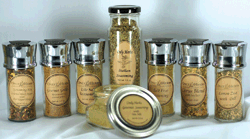 Retailers need to know that natural and organic products have shorter shelf lives than their processed counterparts. Marshall says her seasonings expire in eight months. Barr’s store is busy and she doesn’t have a problem with expiration dates. If a gourmet food item is close to expiring, she has a demo and the inventory sells quickly. Hall, the chief executive officer of Food Marketing International, says retailers can help manage their inventory effectively by keeping records of inventory and sales, and by knowing how well certain items sell during various times of the year.
Retailers need to know that natural and organic products have shorter shelf lives than their processed counterparts. Marshall says her seasonings expire in eight months. Barr’s store is busy and she doesn’t have a problem with expiration dates. If a gourmet food item is close to expiring, she has a demo and the inventory sells quickly. Hall, the chief executive officer of Food Marketing International, says retailers can help manage their inventory effectively by keeping records of inventory and sales, and by knowing how well certain items sell during various times of the year.
Gift shop customers expect to see foods that don’t resemble basic grocery items. “The packaging has to be very, very attractive, or very simple,” says George Gooss, vice president of the Vermont Specialty Food Association and owner of Catamount Specialties of Vermont. “It’s no longer a specialty if it can be purchased from a supermarket chain.” These are the products that will keep your customers coming back for more.

















